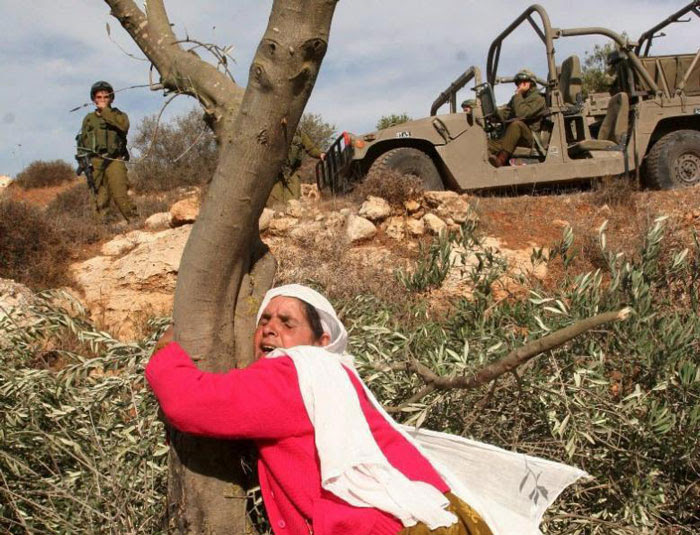In a dialogue with the United Nations Human Rights Council last March 9, Special Rapporteur on the Right to Food, Michael Fakhri, presented a new report highlighting how violence in food systems impacts the human rights of communities and further drives food insecurity.
Fakhri’s ‘Conflict and the Right to Food’ featured cases of human rights violations as reported or documented by various civil society and rural people’s organisations, including PAN Asia Pacific (PANAP).
According to the report, violence is systemic and ingrained in the design of food systems and has intensified in recent years. The Special Rapporteur underlined four inextricably-linked forms of violence: discrimination, physical or mental harm to individuals, ecological violence, and erasure.
Discrimination and inequality
In food systems, inequality and discrimination are often created by preventing and denying food and means to its access, entitlement, and procurement based on ability, class, legal status, age, gender, race, and other identities.
For instance, women in food systems are paid less than men, work more seasonal, part-time, and risky tasks, and are more likely to be employed in non-management roles. Similar forms of discrimination also exist in family or community-run farms, where heteronormative terms determine access to land, inheritance, and resources.
Inequality due to discrimination in food systems is found even among agricultural workers, who are denied labour rights due to their legal status. Agricultural workers are often excluded from the right to freedom of association and collective bargaining, which are fundamental labour rights. Furthermore, seasonal agricultural workers are frequently legally disenfranchised and have even fewer labour rights protection than other agricultural labourers.
Physical or Mental Harm
However, bodily harm is among the most tangible results of violent food systems. The report pointed out that “bodily harm includes creating a climate of fear that denigrates individuals, communities, and peoples, and makes them vulnerable to exploitation” and is not limited to physiological violence.
In food systems where physical and mental harm prevails, the report noted that women, indigenous people, people with disabilities, internally displaced persons, and migrants are among the most vulnerable to suffering.
Forms of harm underscored in the report include armed conflict and economic sanctions in food-insecure nations, which have destroyed local and national food systems. In Yemen, for example, a 2015 blockade on its foodstuffs was described as ‘torture in slow motion’; its far-reaching effects continue today as it remains among the nations with the highest malnutrition rates.
Ecological Violence
Violations of the rights to life, health, water, food, and the enjoyment of a safe, clean, healthy, and sustainable environment are likewise extensive in industrial food systems. As Fakhri argued in his report, “Ultimately, people’s fate is significantly determined by their access to land and their ability to control and steward it”.
Conflict and environmental deterioration become inevitable when land tenure rights are insufficient and insecure. In discussing the perpetrators of ecological violence on food systems, the UN SR underscored PANAP’s and other CSOs’ claims that the dispossession and occupation of land arise from activities enabled by governments and corporations.
Attacks on communities’ livelihoods and threats against defenders who expose such cases should “be understood as acts of terror and assassination,” the report stressed.
Erasure
The act of dispossessing communities from their lands has also overlapped with the violence of erasure, which the Special Rapporteur described as a “practice of collective indifference that renders certain people and groups invisible”.
The erasure of communities occurs when land grabs and occupations leave them displaced, dispersed, and forgotten.
Narratives from PANAP’s No Land, No Life! campaign included in the report described the devastating impacts of land grabs on rural communities. For instance, India’s Polavaram Dam Project has cost the livelihood of 70,000 people, according to PANAP’s partner Andhra Pradesh Vyavasaya Vruthidarula Union (APPVU).
On the other hand, the Coalition of Cambodian Farmers’ Community (CCFC) has reported that its government’s Economic Land Concession scheme continues to diminish the land rights of small-scale farmers.
The destruction of farmland and agricultural activities remains the most tangible way for communities to be erased from their homes and identities. In asserting their rights to land, the Special Rapporteur affirmed the communities’ right to self-determination and sovereignty over their resources.
Ultimately, the report emphasised the crucial need to address conflicts concerning food systems and protect and promote the right to food in all circumstances.
It called on governments, international organisations, civil society organisations, and other stakeholders to address the root causes of conflict and prioritise the needs of conflict-affected people to build food systems that benefit all.
Find the UN Special Rapporteur report in this link: Click Here
Download PAN Asia Pacific’s submission to the UN SR: Click Here
#NoLandNoLife Features discuss recent developments, events, and trends on land and resource grabbing and related human rights issues in the region as well as the factors and forces that drive it. Send us your feedback at nolandnolife@panap.net.








Discussion about this post